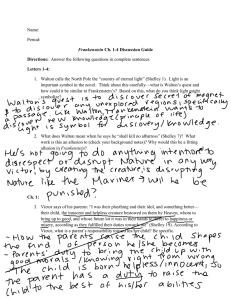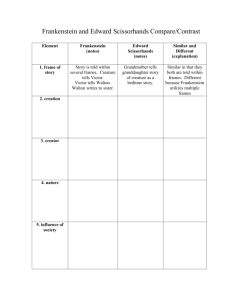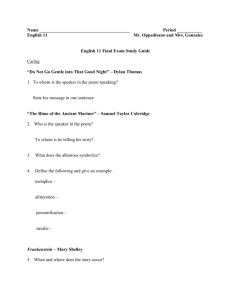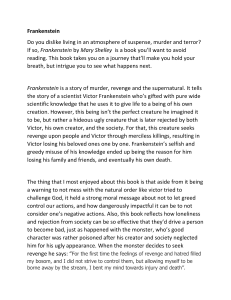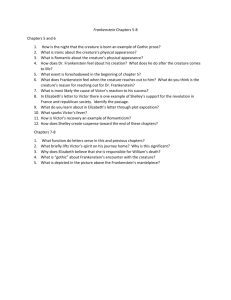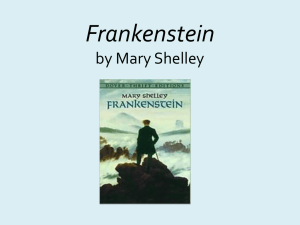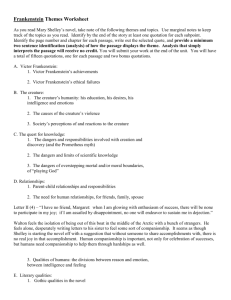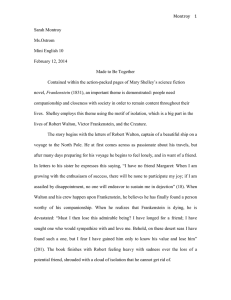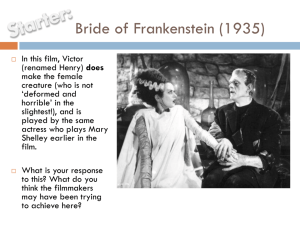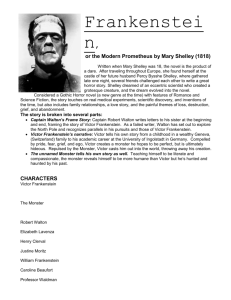Topics for Frankenstein Research Paper
advertisement
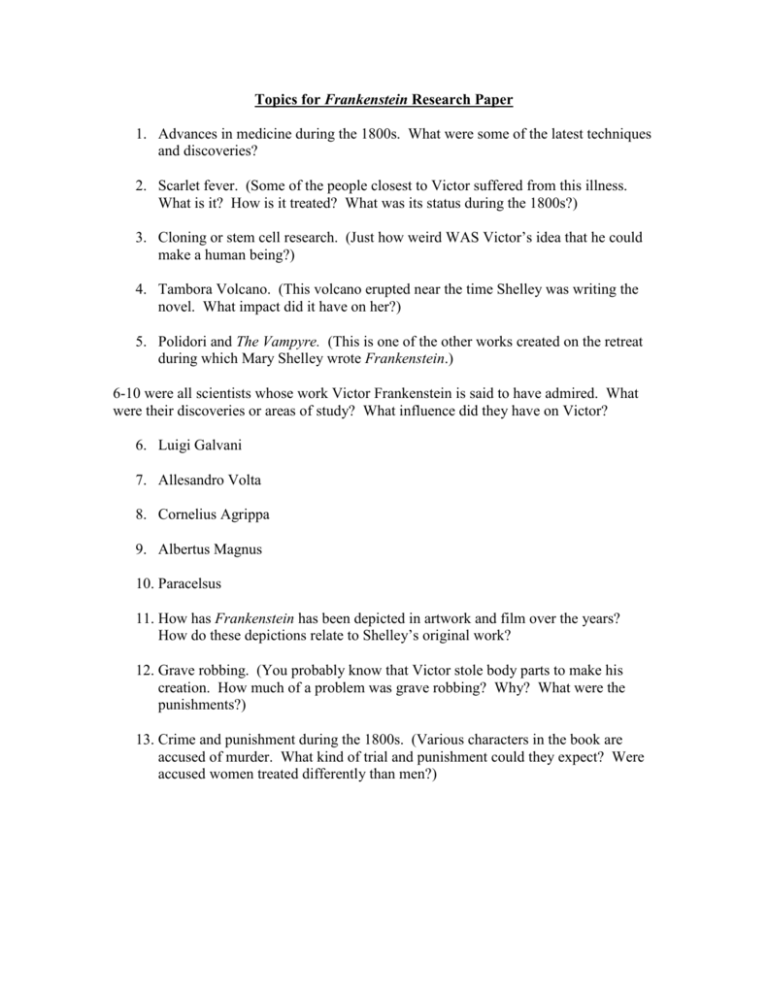
Topics for Frankenstein Research Paper 1. Advances in medicine during the 1800s. What were some of the latest techniques and discoveries? 2. Scarlet fever. (Some of the people closest to Victor suffered from this illness. What is it? How is it treated? What was its status during the 1800s?) 3. Cloning or stem cell research. (Just how weird WAS Victor’s idea that he could make a human being?) 4. Tambora Volcano. (This volcano erupted near the time Shelley was writing the novel. What impact did it have on her?) 5. Polidori and The Vampyre. (This is one of the other works created on the retreat during which Mary Shelley wrote Frankenstein.) 6-10 were all scientists whose work Victor Frankenstein is said to have admired. What were their discoveries or areas of study? What influence did they have on Victor? 6. Luigi Galvani 7. Allesandro Volta 8. Cornelius Agrippa 9. Albertus Magnus 10. Paracelsus 11. How has Frankenstein has been depicted in artwork and film over the years? How do these depictions relate to Shelley’s original work? 12. Grave robbing. (You probably know that Victor stole body parts to make his creation. How much of a problem was grave robbing? Why? What were the punishments?) 13. Crime and punishment during the 1800s. (Various characters in the book are accused of murder. What kind of trial and punishment could they expect? Were accused women treated differently than men?) 14-17 are all novels said to have been read by Victor’s creation. Explain what he learns from them or how he relates them to his own situation. 14. Paradise Lost by Milton 15.Plutarch’s Lives 16. The Sorrows of Werter by Goethe 17. Volney's Ruins of Empires 18. The myth of Prometheus. (The subtitle of the novel is “The Modern Prometheus.” Why?) 19. Theories of language acquisition. (Is it reasonable to believe that the creature could learn to speak by listening to others and reading without any real human interaction?) 20. Role of women in society of the day. (What were the expectations placed upon them? What were their goals and pursuits? What jobs were open to them? Were Jutsine, Elizabeth, and Caroline “typical”?) 21. Freud’s theories of the id/ego/superego. (Some read the creature as an alter-ego of his creator. What do they mean when they say this?) 22. Gothic literature. (Frankenstein is a classic example. So, what was it?) 23. The influence of the author’s life on the story. 24. Importance of letters and letter-writing to this society. 25. What is the nature/nurture debate all about? (What causes the creature’s personality to develop the way it does?) 26. What was it like to “go to university” back then? (Was Victor really lucky to be able to go, or did everyone expect to? What percentage of people went?) 27. The Grand Tour. (Just about every wealthy person went on one. Why? What was it?) 28. Studies of “wild children.” (Wolf Boy, Wild Peter. Feral Children. What happens to children who are completely isolated from human society?)

